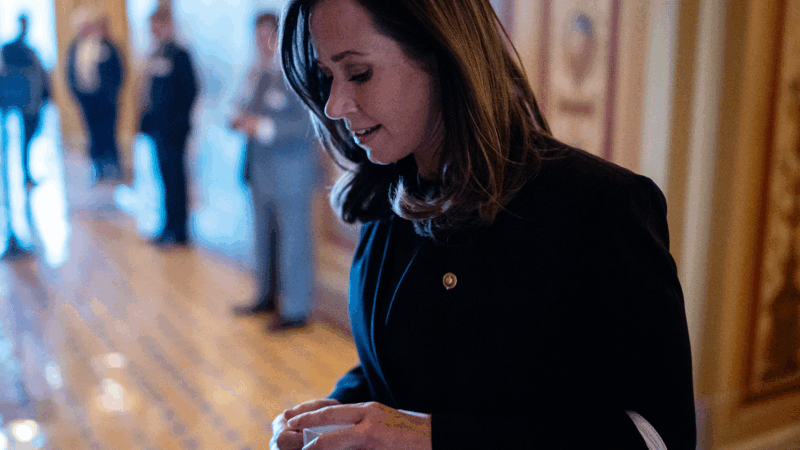“Black Lives Matter” Protests at The Summit and Riverchase Galleria
Nearly 100 people gathered on Friday afternoon on the slope of yellowed grass at the entrance to the Summit shopping center in Birmingham. The idea was to block traffic on U.S. Highway 280 on one of the season’s busiest shopping days, to protest police violence and the unequal treatment of black men and women by the police.
The protesters chanted “I can’t breathe!” in reference to the death of Eric Garner by New York police and “Not just for y’all, justice for all!” The crowd was a diverse mix of men and women, young and old, black and white. Teenagers hung back in groups, while older, experienced protesters sang songs refashioned from the 1960s into a bullhorn.
Jess Eisenberg, who works as a nanny in Birmingham, held up a manilla envelope, which she had turned into a sign with the names of unarmed men and women who have been the victims of police violence.
“I couldn’t fit all the names, cause there are hundreds,” Eisenberg said. “This is an epidemic of a problem and it needs to be addressed. It’s not anti-police, it’s anti-police brutality.”
Chauntel Norris saw the fliers on Facebook promoting the protest, and she decided to bring her twelve-year-old-son and fourteen-year-old daughter. “I feel that it’s important that my children, being from Birmingham, understand activism and that we have to make the changes we want to see,” explained Norris.
Starting Monday, December 15, a Facebook group called “Black Lives Matter – Birmingham” began calling for a protest to shutdown Hwy 280, followed by a “die-in” at the food court at the Riverchase Galleria mall in Hoover. By Friday afternoon, there were multiple reports that the protest had been called off. But by 3 p.m. on Friday, dozens of people had started gathering.
At one point, a young man named Michael Harriot, quietly lay down in the turn lane into the Summit and held up a sign reading “Justice for all.” Two police officers calmly walked over and after fifteen minutes, Harriot stood up to cheers and chants.
Captain Orlando Wilson of the Birmingham police, said they had come prepared should the protest turn violent, but otherwise, they were standing back. “They have a right to be heard, as long as it’s peaceful, we are just giving them their moment.”
About an hour into the protest, two demonstrators, Alesha Irby, 21 and Mercutio Southall, 30, walked into traffic holding a big black banner that read “Black Lives Matter.” Traffic quickly backed up, turning Hwy 280 into a river of white headlights. The police temporarily blocked off lanes and worked to keep people out of the street.
Some cars honked their support, while other drivers sped by, shouting “Get a job” or “All lives matter!” while flipping off the crowd.
In the end, the police convinced Irby and Southall to get out of the highway but allowed all the protesters to march across the 280 and back again.
As it began to get dark, about 60 people slowly walked in single file across lanes of traffic.
Forget the State of the Union. What’s the state of your quiz score?
What's the state of your union, quiz-wise? Find out!
Nancy Guthrie case: How do families of missing people cope with the uncertainty?
When a loved one goes missing, relatives can feel guilty simply for eating, says Charlie Shunick, whose sister was kidnapped. Shunick now helps others navigate a nightmare "nobody is prepared for."
A team of midlife cheerleaders in Ukraine refuses to let war defeat them
Ukrainian women in their 50s and 60s say they've embraced cheerleading as a way to cope with the extreme stress and anxiety of four years of Russia's full-scale invasion.
As the U.S. celebrates its 250th birthday, many Latinos question whether they belong
Many U.S.-born Latinos feel afraid and anxious amid the political rhetoric. Still, others wouldn't miss celebrating their country
SNL mocked her as a ‘scary mom.’ In the Senate, Katie Britt is an emerging dealmaker
Sen. Katie Britt, Republican of Alabama, is a budding bipartisan dealmaker. Her latest assignment: helping negotiate changes to immigration enforcement tactics.
This community festival embraces the joys of a frozen lake — while it still has one
As climate change accelerates, local experts say the date Wisconsin's Lake Mendota freezes over is getting later, making safe conditions for activities that rely on snow and ice harder to predict.





